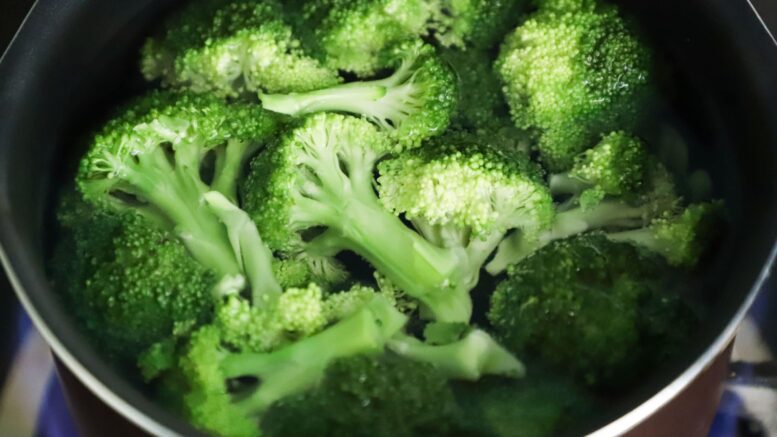Is broccoli good for diabetes? Overview
Type 2 diabetes is the world’s fastest-growing disease. According to WHO today more than 400 million are already suffering from this chronic condition.
When diagnosed with diabetes, to get the blood sugar levels under control and prevent the development of long-term complications first thing you do is change your diet, lose extra weight and exercise more.
These are first-line management options prescribed by physicians in case of pre-diabetes and diabetes. In severe cases, however, treatment with blood-sugar-lowering drugs or sometimes even with insulin is necessary.
How does including broccoli in your diet affect diabetes?

Is Broccoli Good for Diabetes – Including broccoli in your diet
Broccoli is one of the most nutrient-rich vegetables on earth. The beneficial properties of broccoli include a positive impact on digestion, cardiovascular, and immune systems, as well as anti-inflammatory and anti-carcinogenic effects.
What’s more, broccoli is relatively low in sodium and calories and contains no fat at all.
Nutritional Value of Broccoli
100 grams of broccoli contain:
- Total Fat – 0.4 grams
- Cholesterol – 0 milligrams
- Sodium – 33 milligrams
- Total Carbohydrates – 7.2grams
Dietary Fiber – 3.3g
Sugars – 1.4g
- Protein – 2.4 grams
- Vitamins and minerals
- Potassium – 293 milligrams
- Vitamin A – 31 %
- Vitamin C – 108 %
- Calcium – 3.1%
- Iron – 3,7 %
Reasons why broccoli is a “superfood” for people with diabetes type 2
Low glycemic index
The Glycemic index for broccoli is just 4. Compared to other vegetables and fruits this is considered low, meaning that broccolis can be included in every meal without worrying about post-meal blood sugar spikes.
Weight-loss friendly
100 grams of broccoli has just 35 calories and contains no fat at all, which makes it a great food to include in weight-loss meals.
In addition, it speeds up the metabolism and due to its potassium and sodium content, it normalizes the water-salt balance in the body.
The high water and fiber content of broccoli activates digestion, creates a feeling of fullness, and delays the secretion of the hormone ghrelin, which is responsible for causing hunger.
Since maintaining a normal BMI is essential for the management of diabetes, including this extremely diet-friendly vegetable in your daily meals without limit will do you a great favor for weight loss.
Rich source of fiber
Broccoli contains 3,3 grams of fiber per 100 grams of the product. Fiber aids in digestion and play a key role in preventing blood sugar spikes, in addition to protecting against the development of colon cancer.
However, some caution is advised with sensitive digestion because larger amounts can cause abdominal pain or gas.
Vitamin C
Vitamin C – same as ascorbic acid, is a powerful antioxidant that helps strengthen the immune system and fight against bacterial or viral infections, for which diabetics are more vulnerable and also defend against free radical damage.
There is a new study conducted by Deakin University claiming that consuming about 500mg of Vitamin C a day can help lower post-prandial blood sugar levels and regulate blood pressure in type 2 diabetics.
Although bigger and high-quality trials are needed to confirm clinically beneficial findings before recommending daily supplementation of vitamin C for the management of diabetes, before that taking this vitamin daily in the form of broccoli can show off its benefits in a safe way.
Low in carbohydrates
Nearly all the carbohydrates that are found in broccoli are in fiber form which is great for digestion. It’s nearly impossible to get blood sugar spikes from consuming broccoli.
Omega 3 fatty acids
If you’re not a fan of seafood or nuts, including broccoli in your is a great way to fill up on omega-3 fatty acids.
One cup of cooked broccoli contains about 186 milligrams of omega-3 fatty acids, which are known to aid in preventing long-term complications of diabetes. They reduce triglyceride levels and help control blood sugar levels.
The magical compound – Sulforaphane
Sulforaphane – is an active plant ingredient found in cruciferous veggies like broccoli, kale, and cabbage, which has several beneficial properties for health.
It is known that diabetes increases the likelihood of developing cardiovascular disease by about five times since blood vessels are severely affected by chronically high blood glucose levels.
Sulforaphane in broccoli stimulates the body to produce enzymes that protect the circulatory system and reduce the number of molecules that destroy vascular cells.
What’s more, in a laboratory animal study it was found that the plant active ingredient sulforaphane can stop increased glucose production in the liver and can even turn down the expression of genes associated with symptoms of type 2 diabetes in disease rats.
Although the research team advises against self-treatment with high doses of broccoli extract since there is not enough evidence.
Besides that, sulforaphane is known to be anti-carcinogenic and anti-inflammatory and can aid in detoxification.
Improves vision
People with diabetes are known to be susceptible to eye-sight problems in early life because of microvascular changes. After about 15 years with the disease, 25% of type 2 diabetic patients develop diabetic retinopathy, leading to visual impairment and even blindness.
A diet rich in broccoli improves vision. This is due to its constituent carotenoids – lutein and zeaxanthin- accumulating in the retina.
According to a study, they improve the contrast and sensitivity of the eyes to bright light, as well as increase visual acuity.
In addition, lutein helps absorb harmful blue light from gadget screens and neutralizes the effects of free radicals that damage the retina.
It is lutein that gives broccoli its dark green color. Regular consumption of this vegetable prevents cataracts and reduces the risk of age-related vision loss.
To sum up
These ” tiny trees” bring tons of benefits for not only those with diabetes but for everyone. Broccoli is low in calories and high in fiber. The “vegetable superstar” also provides many important vitamins and minerals.
It also contains the so-called glucosinolate-sulforaphane, an ingredient known for its numerous health benefits such as cancer prevention, defense against inflammation, and possible anti-diabetic effects.
Another great advantage of broccoli is that it’s very affordable and easy to make. You can boil, steam, and bake them, add them to your salads or soups, or make them into a smoothie to enjoy for lunch. It goes great as a side dish with nearly all meals.
A short cooking time is recommended to preserve all vitamins and flavor optimally. Considering all this, broccoli is deemed to be one of the most diabetes-friendly foods.
References:
2.https://www.webmd.com/diabetes/news/
3. https://www.ncbi.nlm.nih.gov/pmc/articles/
4. https://www.ncbi.nlm.nih.gov/pmc/articles/PMC3705341/
5.https://www.ncbi.nlm.nih.gov/pmc/articles/PMC4637098/
6.https://blogs.deakin.edu.au/deakinnutrition/
7. https://www.who.int/news-room/fact-sheets/detail/diabetes
See Also

As a nutritionist, I research, find and experiment with recipes, natural diets and meal plans for weight loss, bodybuilding, and detoxing.
